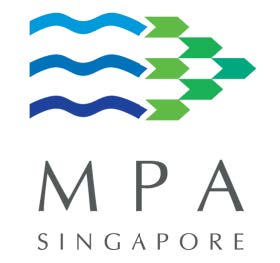Currently, 22 vessels transit daily, divided into 6 Neopanamax and 16 Panamax. This restriction is in response to the challenges posed by the current state of Gatun Lake, which is experiencing unusually low water levels for this time of the year due to the drought induced by the El Niño phenomenon.
October 2023 marked the driest October on record for the Canal Watershed. In anticipation of a potential worsening of the situation in November and December, the decision was made to adjust the number of daily transits to 22 in December, 20 in January, and 18 in February. This year marks the first time the Canal has ever had to restrict transits.
However, as rainfall and lake levels for November proved to be less adverse than expected, coupled with the positive outcomes from the Canal’s water-saving measures, the adjustments announced today will replace the Advisory to Shipping No. A-48-2023 of October 30.
Additionally, the Panama Canal will allow one booking slot per customer per date, with some exceptions for quotas offered to vessels competing through the reservation system.
These measures allow the majority of vessels that want to transit the Canal to have a better chance of obtaining a reservation.
Canal specialists are closely monitoring the current water crisis, and the measures announced today, published in the Advisory to Shipping, will go into effect January 16, 2024, and remain in effect until conditions warrant changes, which will be announced in a timely manner.
As 2023 is the second driest year in recorded history of the Panama Canal Watershed, the Canal has implemented an operational strategy focused on water conservation and transit reliability in the face of low rainfall and the consequent decrease in lake levels.
These measures, together with direct and proactive communication with customers, have proven essential in adapting to the difficult climatic circumstances.
About the Panama Canal Lake System
The Gatun and Alhajuela Canal Lake System stores water primarily intended for meeting the needs of the population and ensuring the smooth operation of the canal. Additionally, stored water is utilized for various purposes, including electricity generation and fostering the nation’s economic activities.
Water extracted from this system undergoes treatment to meet drinking water standards and is distributed to over 50% of the country’s population residing in the districts of Panama, San Miguelito, Arraijan, Chorrera, and Colon. Currently, eight water treatment plants extract water from Gatun Lake, with two more under construction. The Federico Guardia Conte water treatment plant, the largest in the country, draws water from Alhajuela Lake.
source:
Panama Canal
The opinions expressed herein are the author's and not necessarily those of The Xinde Marine News.
Please Contact Us at:
media@xindemarine.com



 Baltic Exchange launches new Fuel Equivalence Conve
Baltic Exchange launches new Fuel Equivalence Conve  21 Consecutive Years of QUALSHIP 21 Recognition for
21 Consecutive Years of QUALSHIP 21 Recognition for  MPA and Wärtsilä Renew Partnership to Drive Marit
MPA and Wärtsilä Renew Partnership to Drive Marit  MPA and Dalian Maritime University Renew Partnershi
MPA and Dalian Maritime University Renew Partnershi  PSA INTERNATIONAL, DNV AND PACIFIC INTERNATIONAL LI
PSA INTERNATIONAL, DNV AND PACIFIC INTERNATIONAL LI  INTERCARGO Reaffirms Call for Simplicity as IMO Cli
INTERCARGO Reaffirms Call for Simplicity as IMO Cli